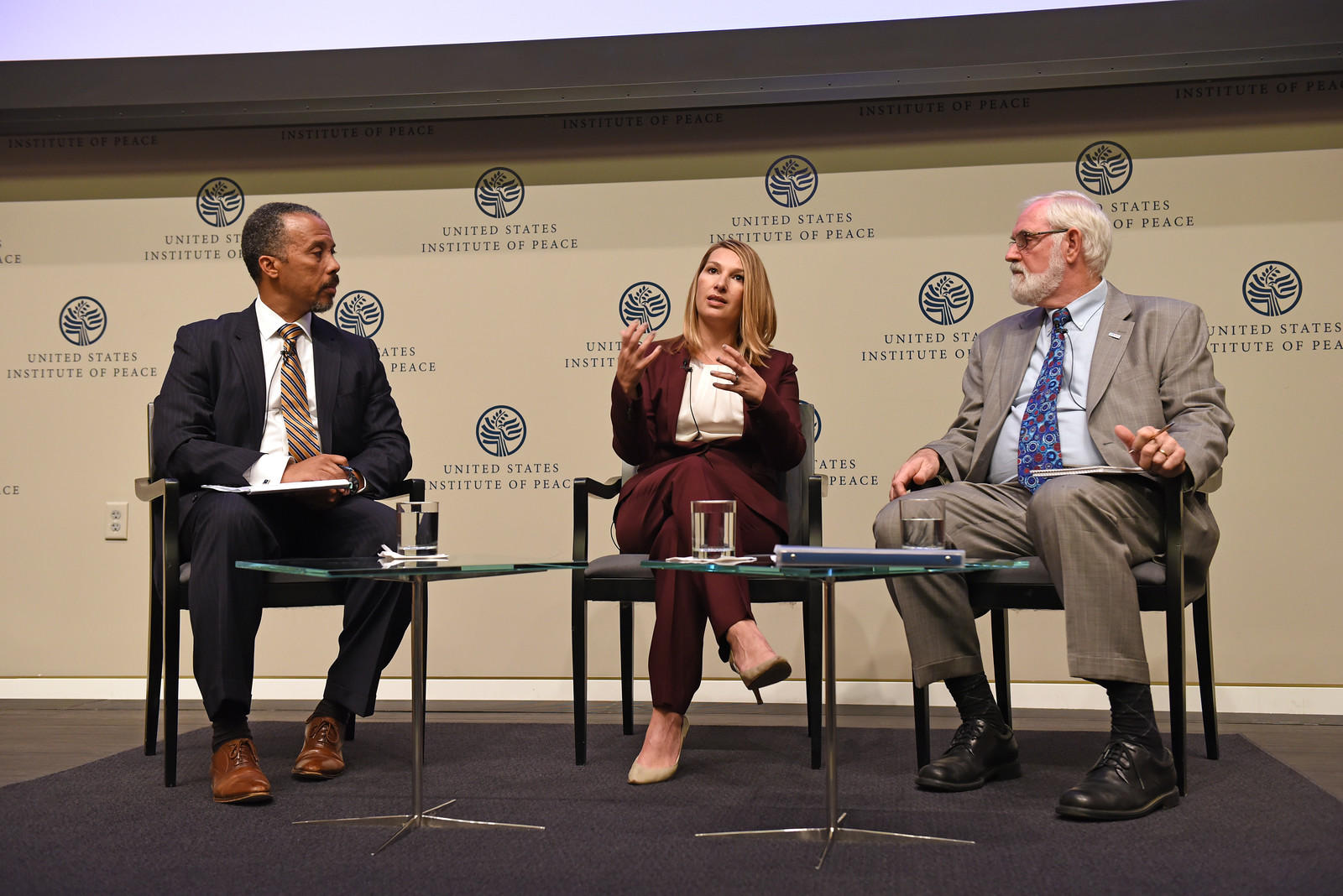Frontline Diplomats and Development Workers
Balancing Mission and Risk in High Threat Environments
Read the Event CoverageDiplomats as well as humanitarian and development professionals are “frontline civilians,” often working in conflict zones despite the risks. Deputy Secretary of State Heather Higginbottom spoke at the U.S. Institute of Peace on June 22 providing a progress report and discussion of how the State Department and the U.S. Agency for International Development are implementing their new strategy for lowering and managing those risks, based on the 2015 Quadrennial Diplomacy and Development Review (QDDR).

QDDR called for the State Department and USAID to “continue to balance our values and interests with the inherent risks of 21st-century diplomacy and development.” Preparation and the mental and physical care of these frontline civilians—before, during and after their assignments—must be paramount and must take into account their different objectives and needs. Leadership must explain to Congress and the American people why such risks must be taken and what is done to minimize, though not eliminate, dangers to civilians in advancing essential diplomacy. The two agencies have made strides toward the goals, but much work remains.
This event follows a daylong conference on the issue in October 2014, in partnership with the U.S. Advisory Commission on Public Diplomacy, the Truman National Security Project, and the McCain Institute. Deputy Secretary Higginbottom, the State Department’s chief operating officer, reviewed how the department and USAID are managing risk and supporting individuals who take on the toughest diplomatic and development assignments. A panel of experts discussed what work still needs to be done to support not just government officials, but also journalists and non-governmental organizations in balancing risk and caring for staff in these high-threat environments. Continue the conversation on Twitter with #FrontlineCivilians.
Participants
Nancy Lindborg, Welcoming Remarks
President, U.S. Institute of Peace
The Honorable Doug Wilson, Introduction of Keynote Speaker
Former Assistant Secretary of Defense for Public Affairs
The Honorable Heather Higginbottom, Keynote Address
Deputy Secretary of State for Management and Resources
Panelists:
Rusty Barber
Director of Program Development & Operations, U.S. Institute of Peace
Stacia George
Deputy Director of the Office of Transitional Initiatives, U.S. Agency for International Development
Jim Leblanc
Board of Directors, International NGO Safety and Security Association
Rebecca Zimmerman
Associate Policy Analyst, RAND
Brian Keane
Director of the Office of Analysis, Planning, Programming and Learning, Department of State’s Bureau of Conflict and Stabilization Operations
Michael Crowley, Moderator
Senior Foreign Affairs Correspondent, Politico
Michael Breen, Remarks
Executive Director, Truman National Security Project
Sim Farar, Closing Remarks
Chair, U.S. Advisory Commission on Public Diplomacy



